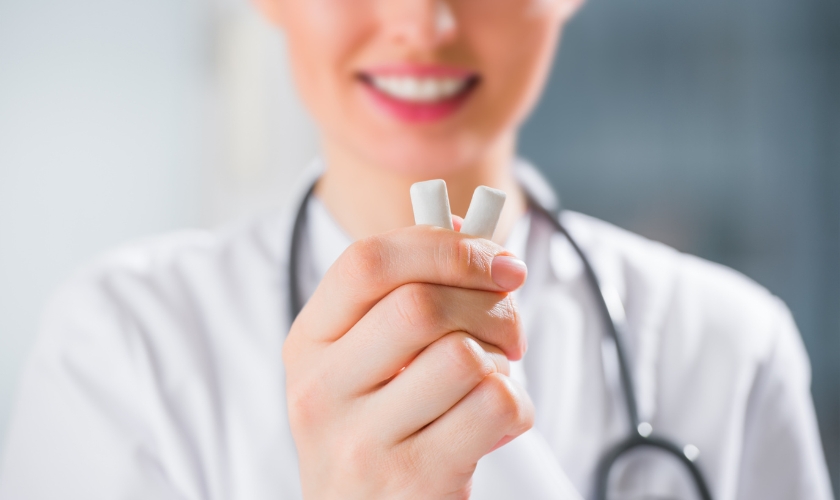
When you think of chewing gum, what comes to mind? Maybe a minty fresh breath or a quick way to curb a sweet tooth. But did you know that chewing gum for oral health can offer more than just temporary freshness? It’s true! In fact, some types of gum can actually benefit your teeth and gums in surprising ways. Let’s dive into why dentists are all about chewing gum for oral health and how it can help you maintain that sparkling smile.
Chewing Gum for Oral Health: Does it Work?
First off, let’s clear the air. Not all chewing gum is created equal. Gum loaded with sugar can actually harm your teeth, leading to cavities and plaque buildup. But sugar-free gum? That’s a whole different story. Dentists often recommend chewing sugar-free gum because it can stimulate saliva production. This helps in neutralizing acids in your mouth and rinse away food particles. This is where the magic of chewing gum for oral health comes in!
Here’s the science behind it: Saliva is your mouth’s natural defense system. It helps neutralize the acids that lead to tooth decay, washes away food particles, and even fights bad breath. Chewing gum for oral health stimulates saliva flow, making it easier for your mouth to naturally protect itself.
Benefits of Chewing Gum for Oral Health
Now that we know it works, let’s look at some of the main benefits of chewing gum for oral health:
- Helps Fight Cavities: Sugar-free gum can help neutralize harmful acids in your mouth that lead to cavities. This happens because it promotes the production of saliva, which can wash away acids and reduce plaque buildup. Chewing gum after meals can significantly reduce the chances of cavity formation.
- Prevents Bad Breath: No one wants to worry about bad breath, especially after eating. Chewing sugar-free gum helps freshen your breath by increasing saliva flow, and reducing bacteria that cause bad breath.
- Boosts Enamel Health: Your teeth’s enamel is the protective layer that keeps your teeth strong. The extra saliva produced from chewing gum for oral health helps protect this enamel, especially if you’ve eaten acidic foods that could wear it down.
- Reduces Dry Mouth: Dry mouth happens when your body doesn’t produce enough saliva, leading to discomfort and potential tooth problems. By chewing gum for oral health, you’re stimulating saliva production, which can help reduce dry mouth symptoms.
Which Gum Is Best for Your Teeth?
Not all gum is going to provide these benefits. In fact, sugary gums can actually contribute to cavities and tooth decay. So what kind of gum should you choose to get the best oral health benefits?
Look for gums that are sugar-free and contain xylitol, a natural sweetener that has been shown to help prevent tooth decay. Xylitol helps reduce harmful bacteria in your mouth and can even improve enamel health.
Dentists recommend sugar-free gums that contain sorbitol or xylitol because they stimulate saliva production without introducing harmful sugars that feed the bacteria in your mouth.
Tip: Always check the packaging to make sure the gum is sugar-free, and look for xylitol as one of the ingredients for the best results in boosting oral health!
Other Things to Keep in Mind
While chewing gum can provide benefits, it’s important to use it in combination with a good oral care routine. Chewing gum should not replace brushing and flossing but rather work as an additional tool to help maintain your oral health.
- Brush and Floss Regularly: Brushing your teeth twice a day and flossing once a day remains the most important step in maintaining good oral hygiene. Chewing gum for oral health doesn’t replace these steps but can work alongside them.
- Visit Your Dentist Regularly: For the best results, make sure to visit your dentist regularly for check-ups and professional cleanings. They’ll make sure everything is in tip-top shape and can advise on any specific needs you may have for maintaining your oral health.
If you want more advice on maintaining your oral health, a dentist in Saginaw can provide personalized recommendations for your specific needs.
Chewing Gum for Oral Health and Your Overall Health
It’s important to note that while chewing gum for oral health can do wonders for your teeth, it also has some other surprising health benefits. For instance, chewing gum can improve your concentration and even reduce stress. The act of chewing increases blood flow to the brain, which can boost focus and alertness. Plus, it’s a simple way to take a mental break during your busy day!
Can Chewing Gum Replace My Other Oral Hygiene Habits?
The short answer: no. Chewing gum for oral health is not a substitute for brushing and flossing. It’s a supplement to your daily hygiene routine. While gum can help freshen your breath, fight plaque, and increase saliva flow, it can’t remove the plaque buildup between your teeth the way flossing can. So, keep up with brushing, flossing, and regular dental check-ups to maintain that healthy, bright smile.
Keep Smiling with Gum: A Simple Addition to Your Routine
Incorporating chewing gum for oral health into your routine can help you maintain a healthier mouth and prevent dental issues down the line. Just make sure to choose sugar-free options with xylitol to get the most out of your gum-chewing habit. It’s a small step that can make a big difference in your oral health!
Tip: After meals, chewing gum prevents acid reflux, freshens your breath, and gives your mouth a quick refresher. It’s an easy way to keep your mouth happy and healthy between brushings.
If you’re looking for more ways to improve your oral hygiene routine, consult with a dentist in Saginaw, MI. They’ll help guide you through the best practices to keep your smile bright and fresh!



